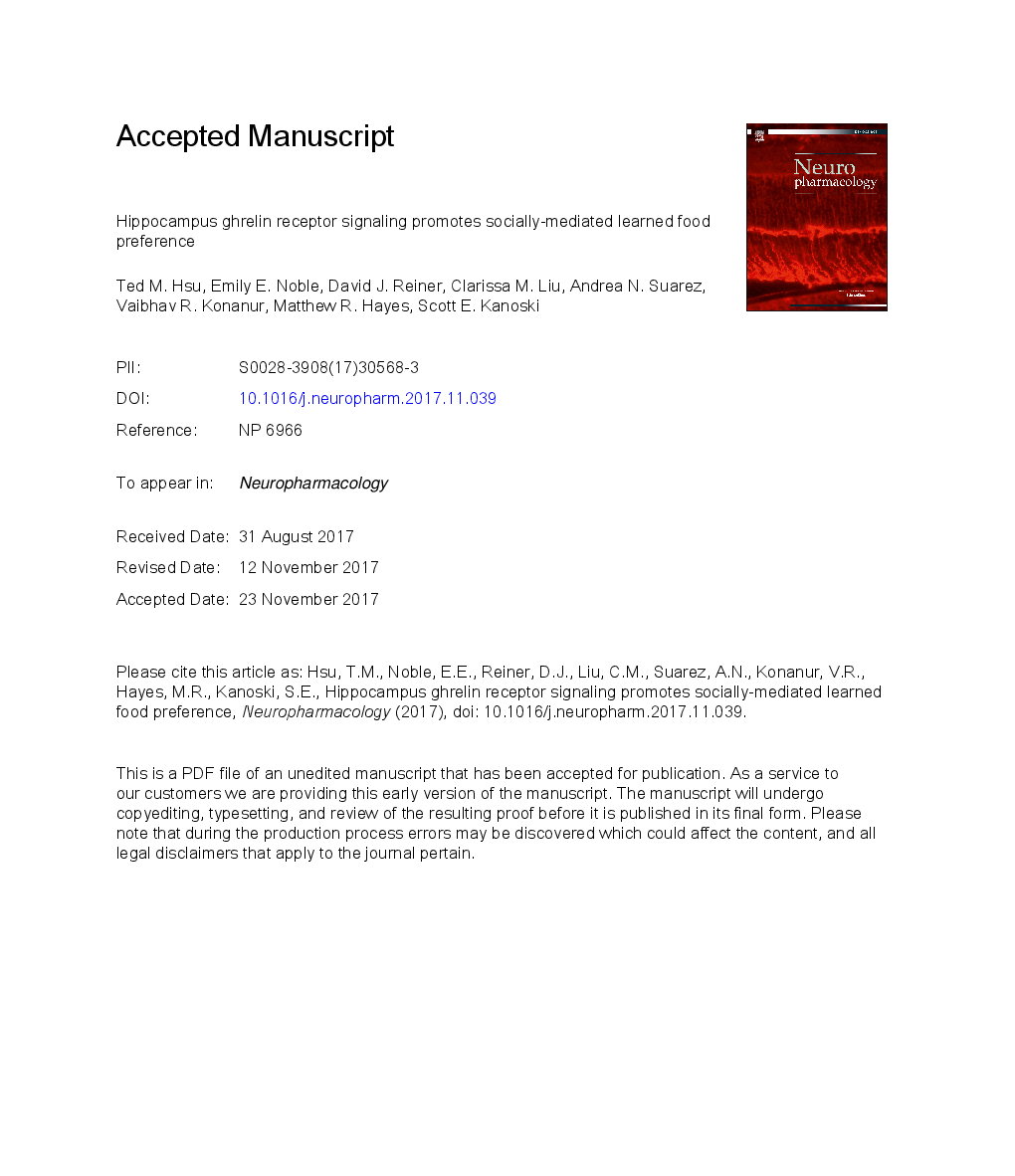ترجمه فارسی عنوان مقاله
سیگنالینگ گیرنده گرلین هیپوکامپ باعث ترویج ترجیحات غذایی آموخته شده توسط اجتماعی می شود
عنوان انگلیسی
Hippocampus ghrelin receptor signaling promotes socially-mediated learned food preference
| کد مقاله | سال انتشار | تعداد صفحات مقاله انگلیسی |
|---|---|---|
| 140356 | 2018 | 38 صفحه PDF |
منبع

Publisher : Elsevier - Science Direct (الزویر - ساینس دایرکت)
Journal : Neuropharmacology, Volume 131, 15 March 2018, Pages 487-496

